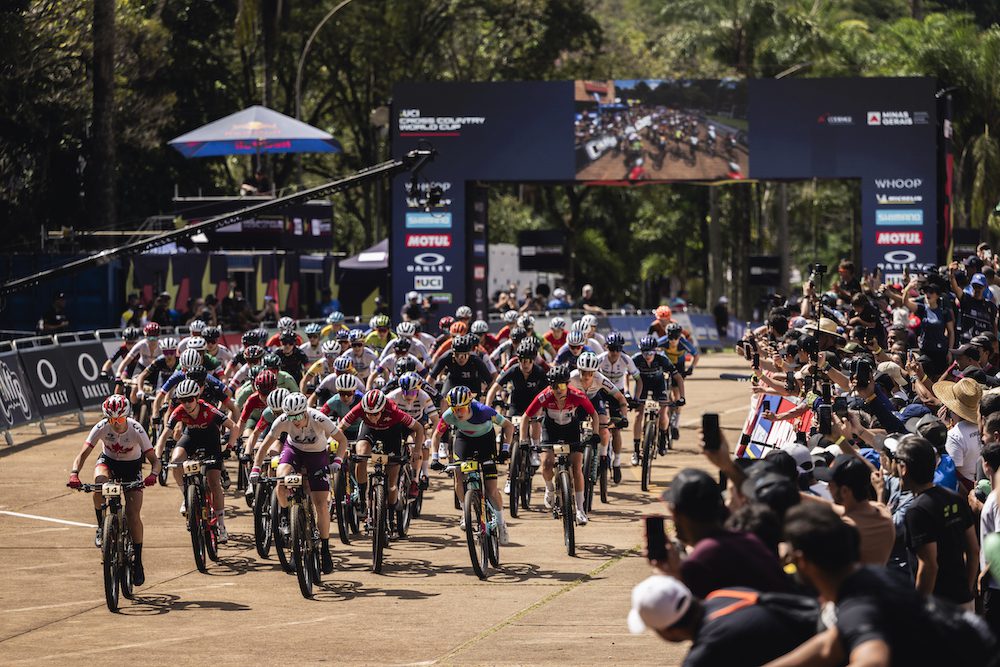When announcers start call-ups to the start line for the Olympic cross country mountain bike race, they should be listing off the fastest riders in the world. The 36 best men and 36 best women with the best chance at winning the race, and a coveted Olympic gold medal. But that’s not what’s going to happen. Or, at least, there will be names missing from that list.
Why? Because the UCI and IOC (cycling and the Olympic’s governing body) continue to insist on a 36-rider limit for each race in mountain biking. To get one of those spots requires a convoluted, two-year, multi-step process that is so arcane only the UCI could dream it up. We’ve covered that, briefly, and how it affects the Canadian selection already. Today, we’re talking about why that system needs to change.
Olympics vs. World Cup
The problem with the 36 rider field is two-fold. First, the breakdown of how the spots on the startling are allocated means riders are punished for being from the same country as other fast riders. Second, it severely limits the field in a way that does not really represent the mass-start nature of the sport at World Cups.
Allocation
Countries can qualify a maximum of two riders in the women’s race and two rider’s in the men’s race for a total of four riders per country. But at the first World Cup in Mairiporã, Brazil, there were four U.S. women in the top 10. Another four Swiss riders were in the top 15. If you take away two U.S. riders and two Swiss, do you still have the fastest 36 women? In the men’s race, the French had three men in the top 10, too. What’s worse is that only the eight top-ranked nations in the UCI’s national rankings get to send two riders. After that, a country only gets one spot on the start line.
How does this compare to a normal World Cup race weekend? Well, in 2023 in the Nove Mesto World Cup there were 132 elite men on the start line from 38 countries and 96 women from 29 countries. In 2024, there are 118 men from 30 countries registered for the same Czech round with 89 women from 27 countries. Even all the way over in Brazil, there were 108 women from 30 countries in Mairiporã and 66 women from 26 countries. That’s with many riders, including the likes of Pauline Ferrand-Prevot and World Cup winner Puck…
Click Here to Read the Full Original Article at Canadian Cycling Magazine…

